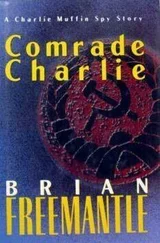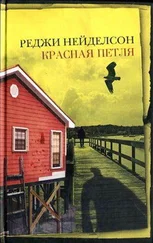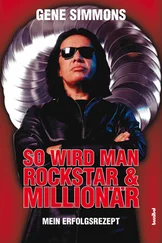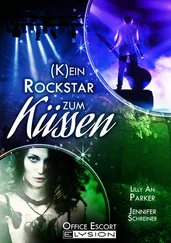Reggie Nadelson
Comrade Rockstar
The life and mystery of Dean Reed, the all-American boy who brought rock'n'roll to the Soviet Union
For Richard David Story
I'd like to thank Artemy Troitsky for his absolutely unique insights into the business of Soviet rock and roll and pop culture and just about everything else back in the USSR. Vladimir Pozner's special perceptions of the relationship between East and West were irreplaceable.
Many others helped enormously during the writing of this book, and I'm grateful to all of them: Svetlana Kunetsina, Jo Durden-Smith, Yelena Zagrevskaya, Xenia Golubovitch, Anatoly Schevshenko, Renate Blume-Reed, Russell Miller, and Johnny and Mona Rosenburg.
I'd also like to thank Mike Wallace at 60 Minutes and Anthony Wall, Alan Yentob, and the late Nigel Finch at the BBC. At William Heinemann: Ravi Mirchandani, Caroline Knight, Susan Sandon, Richard Cable, Cassie Chadderton and Emily Sweet.
And, of course, Leslie Woodhead.
More than anything, this is a tale from the Cold War. It began for me on a Sunday night at home in New York in April, 1986. I was only half-watching as 60 Minutes began and the little clock on the logo went tick-tick-tick and the title of the piece came up on the TV screen. "The Defector," it was called, and then there was Mike Wallace in shot, describing the piece, his voice familiar, resonant; no one in America has a more hypnotic voice than Mike Wallace, and he was talking about a rock star named Dean Reed. I'd never heard of Dean Reed.
The man in the frame now was tall, slim, and improbably handsome, all that thick good hair, the blue eyes, the juicy lips and promiscuous smile, and he was strumming a guitar and singing "Heartbreak Hotel" fit to bust.
I couldn't take my eyes off him. What made it so intriguing was that Reed appeared to be an all-American boy, yet he was in Red Square, being mobbed by Soviet fans, people plucking at his clothes, throwing flowers, begging for autographs - and this during the Cold War. People gazed at him adoringly and behind this big American, a man whose presence was obviously so addictive, so adhesive that everyone wanted a piece, was the Kremlin, heart of the Evil Empire, as Ronald Reagan who was President at the time called it. By now I was crouched near the TV set, transfixed.
The scene shifted as Wallace sketched in the life. Born in Wheat Ridge, Colorado, in 1938, Dean Reed was an American kid with an itch for stardom. At twenty, he set out for Hollywood to try his luck. He had a nice singing voice and he looked great. One of his tunes went gold in Latin America and Reed, always restless, headed south. In Chile, he became a superstar. He also saw the misery in which most people he met lived, and he got politics. By then it was the Sixties and, like millions' of other young Americans, Reed was ripe for conversion.
"Come with me, Dean Reed," said a talent scout from Moscow, who heard him sing at a peace conference in Helsinki. He took Dean back to Moscow and made him a star in the Soviet Union, where tens of thousands of kids thronged to his concerts. Dean, they shouted, Dean Reed!
He sang "Rock around the Clock," he did the Twist in Minsk, he touched people and made them touch each other, and he radiated good health and good looks. His voice wasn't much, but he could carry a tune and whack a guitar, and all of it electrified the audience.
On my TV screen now was a sea of young Russian kids, prim in their white blouses and Young Pioneer scarves, and Dean among them, giving off body heat so potent you could almost feel it through the television. And at his feet, the girls swooning, blushing, throwing red carnations and their neckerchiefs, as he swiveled his narrow hips and preached peace and love, offering them sex and politics and rock and roll all tied up together.
For almost twenty years, he held the East in thrall. He was their American - their first.
"He was the embodiment of the whole country's dream about America," said a young woman in Moscow. "He came and was a smashing success," a Soviet official said. "He became a celebrity. Here it was like it was with the Beatles for that time in England." A fan I met in a Moscow record shop said, "The girls, young girls, are crying, just crying, 'Dean Reed! Dean Reed!'"
Reed's albums went gold from Berlin to Bulgaria. He made cowboy movies, Eastern Westerns with stand-in Indians cast in Uzbekistan. He played the radical circuit, too - South America and the Middle East. He sang "Ghost Riders in the Sky" to Yasser Arafat.
Dean Reed settled in East Berlin, where he married an East German movie star, but he kept his American passport and he filed his tax return annually with the Internal Revenue Service. In fact, he was not technically a defector at all. He called himself an American patriot.
Hard to remember now that, even in 1986, the USSR was still Communist - Gorbachev had been in power only a year - and the rest of Eastern Europe still practically invisible behind the Iron Curtain. It is hard to remember how amazing this seemed: An American rocker in Red Square. Fans clinging to him, throwing flowers.
"Dean was as big a star over there as I'd ever seen anywhere," said an American friend who visited him in the East. "We were never anywhere without him being recognized. Every child, every old lady, everybody knew him."
Artemy Troitsky, Russia's premier rock critic, remembered, "His name was everywhere. Our dear American friend, Dean Reed, was on TV. He was on radio. He was in the papers. His mug was even on paper bags."
Six weeks after I saw the piece about Dean Reed on 60 Minutes , I saw his obituary in the New Yark Times . It was a short obit down the page that I wouldn't have noticed if I hadn't seen 60 Minutes . Drowned in the lake behind the house in suburban East Berlin where he lived, the obituary said. I wanted more.
It was 1986, the Berlin Wall was still up, and information was hard to come by. I started making phone calls. Looking for people who had known Reed. Getting hold of clips from foreign newspapers. Waiting. Obsessing. After a while, a tiny trickle of material about Reed's mysterious death turned into a stream of speculation. Nothing firm. Nothing satisfying.
"Accidental death by drowning" was the official East Getman report, but the follow-up stories concluded that this was pretty fishy. Dean Reed had been an excellent swimmer. He was in great shape. He was only forty-seven.
The Cold War. Rock and Roll. Sex and Death! I was pretty sure that Dean Reed, the life, the way he died; had the potential for a great movie. I tried it out on Leslie Woodhead, a director at Granada Television who had worked in Eastern Europe a lot and a rock fan who had made the Stones in the Park with the Rolling Stones. I told him the story and it took him about two minutes to commission a drama-documentary.
Then came a year and a half of research and, though the drama-documentary never happened, I wrote the first version of this book.
The Berlin Wall was still up and information at a premium. Rumors ran wild. All kinds of people came out of the woodwork: people who had known Reed, or met him once, or slept with him, or said they did. Because Dean Reed was dead before I began, the tales were as often about the tellers, people whose lives were changed, made thrilling or terrible - or both - by their connection with Dean Reed.
For every event, personal and political, there were at least two versions, sometimes three or four or five. Some people were difficult to reach or didn't want to talk. My own obsession was with the East and the Soviet Union. For that reason some of the people, Reed's first wife Patty, his daughter Ramona, who were extremely important to him, barely appear here.
Читать дальше











